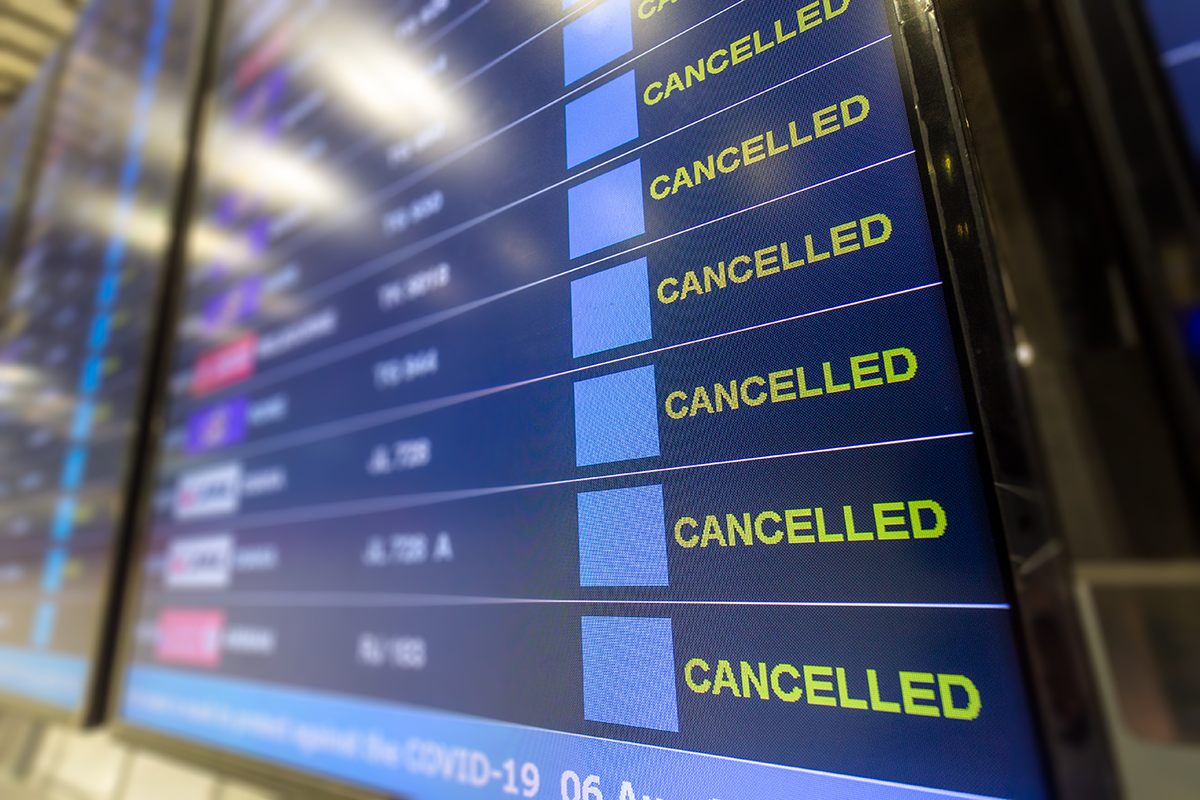Southwest Meltdown Lawsuit

What happens when winter weather disrupts a major airline’s operations and strands thousands of passengers for days on end? Unlike Southwest Airlines’ planes in December 2022, the first lawsuit regarding the meltdown has arrived early.
Tens of thousands of flights were delayed or cancelled during the December holiday break in 2022 because of abnormally cold weather across most of the United States. Southwest Airlines was the most impacted airline and the last airline to resume normal operations. The extensive delays and cancellations by Southwest were attributed to staffing issues and failures of its software. Southwest has already publicly reported that it anticipates losses arising from the disruption to exceed $800 million. That amount, however, may not include the cost to defend and settle lawsuits, the first of which has already been filed.
In Capdeville v Southwest Airlines Co., a proposed filed class action filed in the U.S. District Court, Eastern District of Louisiana, Capdeville, a Southwest passenger, and his daughter were supposed to fly from New Orleans to Portland on December 27, 2022 when their flight was cancelled. Capdeville claims that he was offered a credit toward another flight, but no refund or payment for expenses he incurred.
Capdeville has asserted cause of action for breach of contract, alleging that Southwest’s offer of a credit violated section 9 of the Contract of Carriage. Section 9 requires Southwest either transport the passengers on a cancelled flight to the next available flight or refund the unused portion of the passenger’s fare. A credit for a future flight, according to Capdeville, is not the same as a refund.
Although Southwest has yet to respond to the lawsuit, it has publicly announced that it will be making refunds and reimbursing passengers for reasonable expenses. Capdeville filed his lawsuit on December 30, 2022, three days after his flight was cancelled, but before Southwest made its public announcement. It is unclear whether Southwest’s announcement will neutralize the lawsuit or whether it will cause the asserted claims to morph and the damages to multiply.
Analysts and pundits have provided almost as many reasons for Southwest’s meltdown as the number of flights Southwest cancelled. Poor weather. Antiquated software. Rapid expansion into new areas during the pandemic. The use of point-to-point flight business model rather than a hub-and-spoke model. Abnormally high volumes of passengers. The list goes on and on. Southwest’s woes are magnified by its legendary company culture and cultivated image as the airline most responsive to its customer’s needs. When flight attendants and pilots complained to the press after the December debacle about Southwest’s poor operational systems, it reflected a break from the culture. And when passengers were left stranded for days without being told when they could fly to their destinations, Southwest’s image as a caring airline was shattered.
What does any of this have to do with construction? Lots. In the aftermath of the shelter-at-home orders, many designers and contractors experienced significant growth in the number and complexity of projects they handled. Even with the significant increase in interest rates, many regions in the US, particularly Texas, are continuing to see an increase in certain sectors of the construction industry. Growth increases the opportunity for delays, cost overruns, deficiencies and claims. And an economic slowdown almost assuredly magnifies these problems.
To manage the risk associated with either continued growth or a slowdown after a sustained period of growth, processes and systems should be periodically evaluated and modified or replaced, as appropriate. Those processes range from negotiating contracts that build-in some leniency with regard to project time or cost to implementing project management systems that insure proper documentation accompanies each change order to human resource management processes that address the uptick in large verdicts in employment discrimination and retaliation cases.
Southwest’s failure to improve its processes and systems led to a risk management nightmare. With all the cancellations and bad publicity, Southwest can be assured of only one thing: The Capdeville v. Southwest Airlines lawsuit will not be the only suit filed against the airline related to its December meltdown.
The attorneys in our Austin and Dallas office assist design and construction professionals daily in assessing, managing and documenting risk. We are available to answer any questions you may have. Please contact us at info@gstexlaw.com.
Legal Disclaimers
This blog is made available by Gerstle Snelson, LLP for educational purposes and to provide general information about the law, only. Neither this document nor the information contained in it is intended to constitute legal advice on any specific matter or of a general nature. Use of the blog does not create an attorney-client relationship with Gerstle Snelson, LLP where one does not already exist with the firm. This blog should not be used a substitute for competent legal advice from a licensed attorney.
©Gerstle Snelson, LLP 2022. All rights reserved. Any unauthorized reprint or use of this material is prohibited. No part of this blog may be reproduced or transmitted in any form or by any means, electronic or mechanical, including photocopying, recording, or by any information storage or retrieval system without the express written permission of Gerstle Snelson, LLP.

